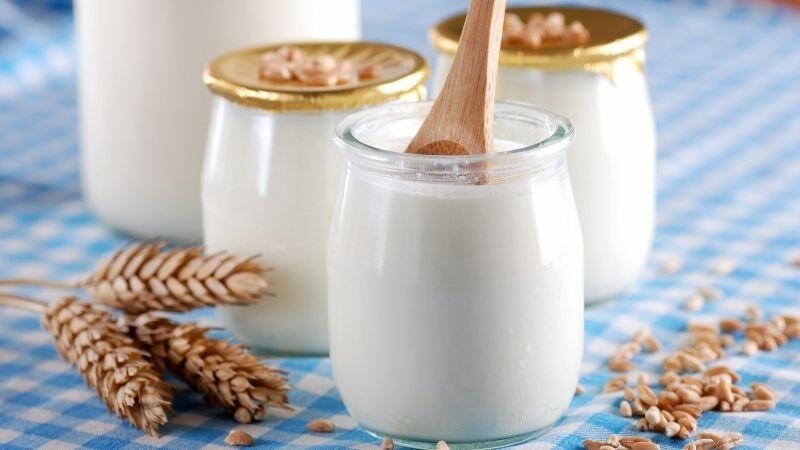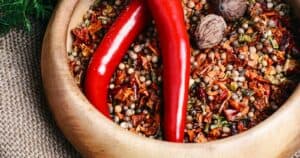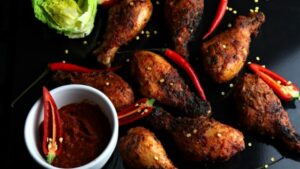If you love spicy foods like hot wings, curries, or extra fiery salsa, you know the telltale “spicy tongue” doesn’t disappear as soon as you finish your meal. That prickly, searing sensation can linger long after taking your last bite. But just how long does
The answer may surprise you. On average, the irritation and heat from spices lasts 15-30 minutes in the mouth. However, the exact duration depends on many factors, including your personal tolerance levels, the type and amount of
Let’s explore what causes that fire in your mouth, how long it typically lasts, tips for relief when the heat becomes too much, and more. Understanding the science behind your mouth’s spicy burn will ensure you can safely enjoy those Buffalo wings without ruining the rest of your day.
What Causes Oral Spice Burn?
The key culprit behind spicy food’s searing tongue sensation is capsaicin, an active compound found in chili peppers.
When consumed, capsaicin binds to receptors in your mouth that detect heat and pain. This triggers nerves to fire, making your brain think your mouth is literally hot.
Capsaicin does not actually burn or damage mouth tissue. But it sure feels like it!
Other spices like black pepper, ginger, and cinnamon contain similar irritating compounds that activate heat-sensing nerves. So they can also cause a prickling mouth burn, although usually less intense than chili pepper heat.
How Long Does the Burning Last?
While unpleasant, thankfully the spicy mouth feeling usually only lasts 15-30 minutes. However, many factors influence duration:
- Spice type and quantity: Chile peppers cause longer burn than black pepper. More capsacin = more burn.
- Food texture: Chili purees coat the mouth more than chunks.
- Tolerance levels: Frequent
spice eaters adapt to handle more heat. - Individual physiology: Some people have more heat receptors or sensitivity.
- Health conditions: Inflammation or irritation make burn worse.
- Hydration: Dry mouth exacerbates spiciness.
In extreme cases like eating a ghost pepper, searing mouth pain can persist for up to 2 hours!
The Sensations and Lingering Effects of Spice
The burning feeling from spicy food is complex, causing an array of sensations in the mouth beyond just heat. Understanding the nuances can help you better manage the experience.
Common sensations from spicy foods include:
- Heat – A scalding, prickling feeling
- Tingling – A vibrating numbness
- Throbbing – Pulsing pain
- Stinging – Sharp poking
- Tightness – Constricted muscles
The type and combination of sensations depends on the specific spices and your personal sensitivity.
These feelings originate on the tongue but can spread to the lips, gums, throat, and palate as nerves fire. The peak intensity occurs immediately after eating.
However, the irritation and odd lingering effects can persist long after the initial exposure. It takes time for the nerve reactions to fully subside.
During this recovery period you may experience:
- Residual tingling
- Throbbing
- Tightness
- Raw tenderness
- Changed taste perception
Sipping cool liquids and avoiding additional
Being aware of the diverse sensations and recovery time will help you gauge and manage your personal reaction to beloved spicy fare.
Does Spice Damage Your Tongue?
Rest assured, eating spicy food does not permanently damage taste buds or mouth tissue when consumed occasionally.
The capsaicin merely triggers temporary pain receptors. It does not actually “burn” anything or cause lesions.
However, very frequent incredibly spicy eating may cause minor damage to taste buds over time. Moderation is key if you want to avoid dulling your taste sensitivity.
Tips to Soothe Spicy Mouth Burn

While tolerable, an uncomfortably spicy tongue can put a damper on your meal. Here are some tricks to find relief fast if you accidentally overdo the heat:
- Drink milk. Milk proteins bind to capsaicin molecules, washing them away. Cold milk works best.
- Eat plain yogurt. Like milk, yogurt coats and soothes the mouth.
- Suck on an ice cube. The cold numbs burning nerves.
- Eat honey. The viscosity and sweetness distracts nerves from pain.
- Avoid water! It spreads capsaicin around the mouth more.
- Chew on bread. Starches help absorb irritating oils.
- Suck on a mint leaf. Menthol cools and distracts
spice nerves.
Relief is usually swift, allowing you to get back to enjoying your wings or extra hot salsa.
Building Spice Tolerance
If you’re
- Start with small amounts of mild spices like paprika.
- Slowly increase quantity and frequency.
- Occasionally have an extra spicy meal to push your limits.
- Stay hydrated to ease discomfort during adjustment.
- Let your mouth fully recover between exposures.
- Wait until any mouth irritation totally subsides before going hotter.
With patience, your nerve’s pain signals will adapt to handle more
When to See a Doctor
You should seek medical care if mouth pain from spicy food becomes:
- Severe and unrelenting
- Accompanied by visible burns, bleeding, or ulcers
- Lasting longer than 12 hours
- Interfering with eating, talking, or sleeping
- Indicative of a reaction, allergy, or sensitivity
Prolonged oral irritation after spicy food may require medication to manage, especially if excessive swelling impairs breathing.
Spice Safety 101
Here are some final tips for safely enjoying the heat:
- Start with small amounts of new spices to test tolerance.
- Avoid extreme burn challenges.
- Choose whole spices over extracts for more flavor control.
- Keep hydrated and limit alcohol, which exacerbates irritation.
- Rinse your mouth with non-acidic fluids post-meal.
- Allow 1-2 weeks between ultra-hot exposures.
- Have cooling foods like yogurt or milk on hand.
For most
Sources





